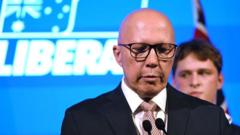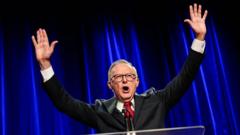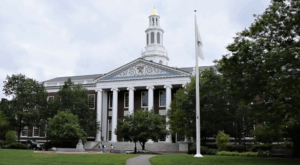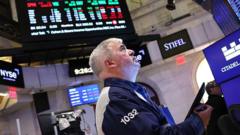As he steps into the role of Prime Minister, Carney's leadership signals a strategic shift in Canada's economic diplomacy, particularly in addressing threats posed by the aggressive trade policies of Donald Trump.
How Mark Carney's Leadership Will Shift Canada's Approach to Trade Tensions
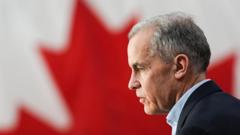
How Mark Carney's Leadership Will Shift Canada's Approach to Trade Tensions
Mark Carney's election win marks a pivotal moment for Canada amid escalating trade conflicts with the U.S.
On what marked the final day of an intense election campaign, Mark Carney found himself garnering support across Canada, not just aiming for victory, but for a strong mandate to confront the looming trade adversities from the United States under President Trump. Previously seen primarily as a technocrat, Carney's transformation into an engaging public figure resonated strongly with voters.
In a rally in Edmonton, Alberta, he declared, "President Trump has ruptured the global economy... America's leadership of the global economy is over." He painted the narrative of a nation determined to defend itself, evoking a spirit of resilience reminiscent of Canada’s famed hockey culture. His supporters chanted "Elbows Up," a popular phrase symbolizing the country's readiness to confront challenges head-on.
Carney emphasized the importance of cooperation among Canadians, reiterating a focus on internal solidarity: "Canadians are standing up for each other, buying and traveling within our community." As polls showed growing uncertainty, Carney's rhetoric, much like a seasoned economist turned politician, aimed to unify disparate regions against an external threat.
Entering the elections, Canada had seen fragmented opinions with the Liberal Party trailing nearly 29 points behind the Conservatives. However, a series of aggressive U.S. trade measures, particularly tariffs targeting Canada under dubious pretexts, catalyzed voter support towards Carney’s Liberal Party, which soon surged ahead in the polls. His candidacy, during these tumultuous times, served as a unifying force bringing together left-leaning voters anxious about a Conservative administration bolstered by Trumpian politics.
In the debate concerning Canadian sovereignty, Carney's final rally took place on the U.S.-Canada border, symbolizing the critical nature of trade relations between both nations. Despite initial forecasts of an overwhelming Conservative victory, opinion shifts in response to U.S. tariffs brought forth a surprising political landscape.
In an exclusive interview with the BBC, Carney outlined a vision for a "win-win" partnership with the United States, emphasizing Canada’s crucial role as a significant trade partner to the majority of U.S. states and an essential supplier of energy and resources. As he navigates potential negotiations, he’s also keenly aware of the necessity for Canada to diversify its trade relations beyond the U.S., focusing on alliances with Europe.
Recent developments include a potential acceleration of the stalled Canada-UK trade agreement, along with a historic visit from King Charles to Canada, further underscoring Carney's ambition to cement Canada's independence on the global stage.
Looking ahead to the G7 summit Carney will host in Alberta, he recognizes the significance of collaborating with other world economies to tackle mounting trade issues, especially as tariffs are poised to ripple through the U.S. economy, creating additional tension.
Despite facing challenges, including a minority government, Carney portrays this as a unique opportunity to foster cross-party collaboration, enhancing Canada’s strength in negotiations with the U.S. The unfolding complexities of domestic and international politics indicate that Carney’s leadership may not only redefine Canadian trade policy but also set a new tone in its relations with the U.S. during a notably intricate global landscape.


